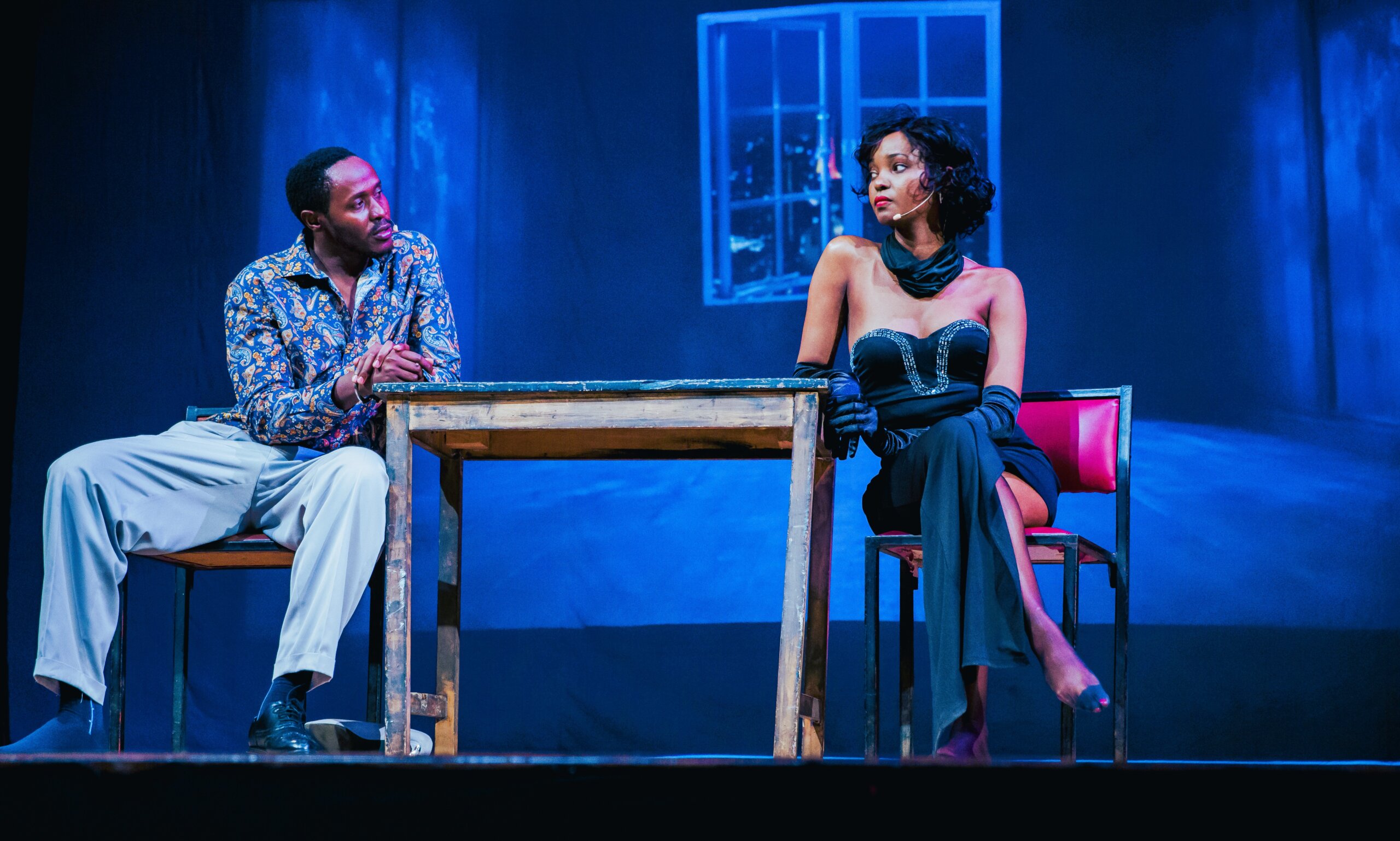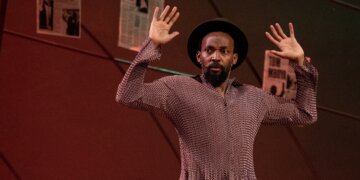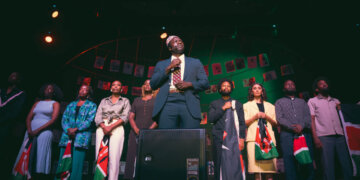What better time to stage a play about two broke and desperate ex-lovers attempting to rob a gate collection than the month of love? On Valentine’s Day, I caught the opening of Cards on the Table at the Braeburn Theatre, a play directed by Victor Gatonye, who returns to the stage after ten years. The play also marks Gatonye’s return to Kenya after a year spent working on two drama series in Somalia.
Cards on the Table is a deeply personal project for Shirleen Wangari who wrote, produced, and starred in this play, as well as her short film 1992, from which the play is based. Also starring Nyakundi Isaboke and Mufasa Kibet, this comedy may just have introduced Kenyan audiences to a new kind of mainstream avant-garde theatre.
As a writer, Wangari has outdone herself. While the play may seem like a run-of-the-mill fun-time-around-the-town experience, it holds an unexpected depth that isn’t immediately apparent. It’s raucously funny, with moments that will have you laughing in the aisles, yet it also tugs at the heartstrings with impressive balance. It’s romantic slapstick done as well as I can ever remember on a Kenyan stage.
The show kicks off with singer Bridget Blue serenading the audience, setting the mood with her soulful voice. Then we jump right to Isaboke’s Jackso meeting his ex-girlfriend Beth, played by Wangari, at KICC with plans to rob the gate collection. Their heist is deliciously sidetracked by the fact that they cannot seem to get anything right or stay on the same page. Despite this constant bickering, their underlying sense of goodness is never lost on the audience, and even when they’re nasty to one another, it’s all done under the general gauze of mutual respect and love. After a few shenanigans, they find themselves in the custody of Detective Kip, played by Kibet, and the rest of the play unfolds in an interrogation room.
Despite being a bottle production with minimal settings, Cards on the Table manages to offer an expansive experience through its innovative use of stage and screen. The footage, shot in silhouette and accompanied by 90s music to constantly remind the audience of the timeline, adds a cinematic layer to the theater experience. “We wanted to shoot in silhouettes because it looks peculiar and it made us laugh genuinely when we saw it,” director Gatonye told me after the performance.
The robbery scene on the screen enhances the comedy with a stylised, almost cartoonish quality reminiscent of the best silent films. When a character is hit over the head with a rungu, it’s not brutal—it’s a perfectly timed punchline to a joke set up minutes earlier.
As Detective Kip, Kibet gives the best performance, complete with an uncanny Kalenjin accent. With frequent references to his wife and some of the zingiest dialogue, his humour – salty and degenerate – provides the perfect counterbalance to the romance between the leads. He also treats the audience to a piece of poetry toward the end that fits seamlessly into the play.
Isaboke also shines as Jackso, blending charisma and masculinity with a willingness to be the butt of the joke. His indignation when Beth tries to seduce the detective to get them out of jail is both relatable and hilarious. Isaboke seems to be in the next stage in the evolution of what we used to call the “king of actors” – a consummate and generous performer.
As the female lead, Wangari delivers the comedic turn we’ve been waiting for since Tahidi High. Having already proved herself as a strong dramatic actress over the years, her performance here feels like a return home for such funny-bone-tickling talent as she possesses. For a little over an hour, Wangari exudes warmth, wit, seduction and vulnerability – all beautifully balanced to showcase not just her range as an actress but also her skill as a writer. She wrote herself in a way that most actresses would shy away from if they were ever in her position to control the story. Her elegant gown and sleeve-length gloves lend her a femme-fatale appearance, but by the end, Beth feels less like a classic femme fatale and more like a Disney princess in spirit.
Cards on the Table is more than just a funny time. By the time the lights came up, the play had taken the audience through a full spectrum of emotions—leaving them entertained, moved, and perhaps a little more reflective about love and relationship. Watching it with my girlfriend, we traded knowing glances throughout, relating to several moments between Beth and Jackso. As Wangari told me after the show, “I wanted to create an entertaining piece that would lead people in relationships to open up more to each other.”
Enjoyed this article?
To receive the latest updates from Sinema Focus directly to your inbox, subscribe now.











